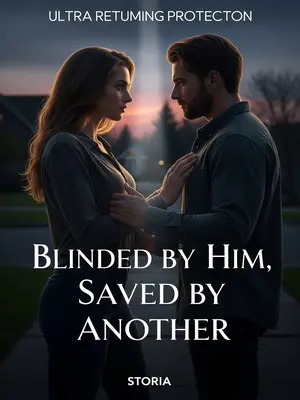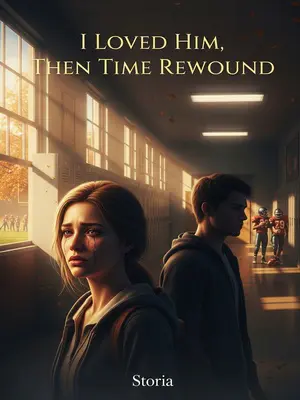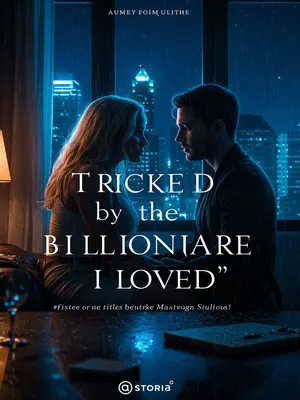Chapter 3: Shadows of Hope and Loss
We’d repeat the lines together, laughing when I stumbled. We’d sit by the window in the evenings, the light fading, and sound out words together. He never lost patience, even when I stumbled. Every page turned was a small victory.
Two lost souls. Finding comfort. At the time, I thought we were just like that poem.
He cared for me, and I for him. It was simple. Honest.
It was simple, honest. I never questioned it—not then.
Our footsteps echoing on the dock. The sky painted with dusk. We’d hold hands and live a simple, peaceful life together.
Our footsteps would echo on the old wooden dock, the sky painted with the colors of dusk. We’d talk about building a bigger cabin, maybe getting a dog. I pictured lazy Sundays, coffee on the porch, a life stripped of all the complications that came later.
The words rang out, startling me from my thoughts. "Next—Lila Reed, the fisher girl."
After waiting for two hours, my name was finally called. I stood. Smoothed my skirt. My hands trembled.
Their faces unreadable. Masks of polite interest. In front of me were all the family lawyers, senior managers, relatives and board members.
Their faces were unreadable, masks of polite interest or barely concealed disdain. I felt like a bug under a microscope, every flaw magnified. My palms were slick with sweat.
I was just a nobody.
A fact everyone in the room seemed to know.
So I was put at the very end.
The last in line, the afterthought.
The hush was oppressive. Only the soft shuffle of papers. The grand hall was cavernous, with the family and staff lined up on either side.
The hush was oppressive, broken only by the soft shuffle of papers or the occasional cough. The ceiling soared overhead, chandeliers sparkling. The hush was heavy, broken only by the occasional cough or shuffle of feet. I felt tiny, swallowed up by all that space and expectation.
I’d never seen anything like it before.
The scale of it, the formality—it was overwhelming.
Instinctively, I wanted to look for Gabriel.
My eyes darted to the front of the room, searching for a familiar face.
He was so far away. Sitting up front. His face blurred. I couldn’t see him. The distance between us felt wider than ever. I wondered if he could even see me, or if I’d already faded into the background.
The distance between us felt impossible.
A voice snapped:
"You’re in the presence of the heir—show some respect!"
The reprimand was sharp, echoing through the hall.
I jolted back. Bowed. Knelt. Just like she’d taught me. I bent low, my hair falling forward to hide my face. My heart hammered in my chest, and I tried to steady my breathing. The old floor was cool beneath my knees.
The movement was awkward, my knees knocking against the cold tile.
The moment my forehead touched the cold tile, a rush of jumbled, chaotic memories surged through my mind.
It was like falling, tumbling through fragments of another life.
I gripped my sleeve tight, my fingers digging into my palm.
The pain grounded me, a reminder that I was still here, still fighting for something—anything—to hold onto.
So, I really had been here before.
The certainty settled over me like a shroud.
So, this wasn’t the first life.
The realization was both terrifying and oddly comforting.
In my previous life, it was also here.
The same room, the same faces, the same question hanging in the air.
Jackson asked me what reward I wanted.
His eyes had been unreadable, his tone cool.
I raised my head. Said I wanted to stay by his side. To become his wife.
I’d spoken the words with all the hope I had left, desperate for a place to belong.
I was asking for a place in his life.
Not just as a helper or a friend, but as someone who mattered. It was a bold request, and I knew it.
But I didn’t know. Jackson had already promised the judge. Their families had history. Their parents had planned it since they were children. I was never really a contender.
The deal had been struck before I ever entered the picture. I was asking for something that had never really been mine to claim.
At the same time, the judge would retire and move down South.
It was a package deal—the marriage, the retirement, the transfer of power. I was just collateral damage.
My request back then wasn’t just wishful thinking—it also put Jackson in a tough spot.
I hadn’t meant to, but I’d forced his hand. The room had gone tense, everyone waiting to see what he’d do.
But then, a city councilman jumped in.
He was the judge’s rival and didn’t want to make things easy for him.
He gave a long speech, calling out every detail of my two years caring for Jackson.
His words were sharp, calculated. He painted me as a symbol—loyalty, sacrifice, the heart of the people.
"If you abandon this girl, what will the people think?"













